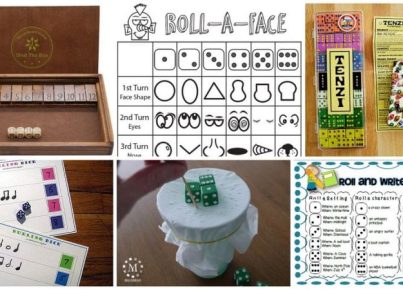-
- Addition War
This game is played like traditional War, except instead of comparing cards based on their numerical value, players must add the values of their cards together. The player with the highest sum wins the round.
-
- Fraction Flip
In this game, players take turns flipping cards and creating fractions using the numbers on the cards. The goal is to correctly order the fractions from least to greatest.
-
- Number Line Rummy
Players must form sequences of numbers in ascending or descending order by collecting cards and arranging them on a number line. The player with the longest and most accurate sequence wins the game.
-
- Multiplication Memory
This memory game requires players to match multiplication equations with their correct products. It helps students practice their multiplication facts while having fun.
-
- Fraction War
Similar to Addition War, students compare fractions instead of numbers. The player with the highest fraction takes the cards. This game helps reinforce the concept of comparing fractions.
-
- Place Value Go Fish
Players take turns asking for cards that represent different place values. The objective is to collect sets of cards that represent the same value, such as 100s or 10s.
-
- Probability Poker
Using a deck of cards, players calculate the probability of various poker hands. This game encourages strategic thinking and understanding of mathematical probability.
-
- Division Bingo
Players solve division problems to mark off numbers on their bingo cards. The first player to complete a line or a blackout wins the game and practices division skills.
-
- Geometry War
Players compare geometric shapes based on their properties, such as number of sides or angles. The player who correctly identifies the relation wins the round.
-
- Order of Operations Uno
This game combines the rules of Uno with practicing the order of operations. Players must perform the math operations on their cards in the correct order to play them.
-
- Skip Counting Go Fish
Players practice skip counting by asking for cards that follow a specific counting pattern, such as counting by twos or fives.
-
- Decimals War
In this variation of War, players compare decimals instead of whole numbers. The player with the highest decimal takes the cards.
-
- Data Analysis War
Players compare sets of data represented on cards and determine which set has the largest mean, median, or mode. This game reinforces data analysis skills.
-
- Prime Factor Bingo
Players find the prime factors of numbers on their bingo cards by using multiplication and division. The first player to complete a line or a blackout wins the game.
-
- Roman Numeral Memory
In this memory game, players match cards with Roman numerals to their equivalent Arabic numerals. This game helps students practice converting between the two numeral systems.
-
- Equation Solitaire
Players try to form valid equations using the cards on the table. The goal is to use all the cards and create equations that are true.
-
- Place Value War
Similar to traditional War, but players compare the place value of their cards instead of their numerical value. This game helps reinforce the concept of place value.
-
- Graphing Go Fish
Players ask for cards that represent specific points on a coordinate grid. The goal is to collect sets of cards that lie on the same line or create other geometric shapes.
-
- Money Bingo
Players solve money-related problems, such as adding or subtracting amounts, to mark off numbers on their bingo cards. The first player to complete a line or a blackout wins the game.
-
- Measurement War
Players compare measurements, such as length, weight, or volume, by using the cards. The player with the largest or smallest measurement wins the round.





